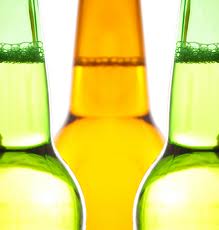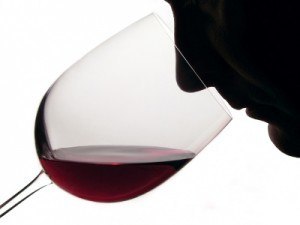Know Your Vices: Alcohol
 While we can enjoy alcohol in moderation, we recommend that you get to know your vices a bit better in order to make good decisions about when you do decide to have a drink. How alcohol affects weight gain or weight loss depends on genetics, diet, gender, potential ‘sensitivity’ to it, and your habits. No single food item affects humans in so many varying and differing ways.
While we can enjoy alcohol in moderation, we recommend that you get to know your vices a bit better in order to make good decisions about when you do decide to have a drink. How alcohol affects weight gain or weight loss depends on genetics, diet, gender, potential ‘sensitivity’ to it, and your habits. No single food item affects humans in so many varying and differing ways.
All alcoholic beverages contain calories, most of which come from the alcohol. Regardless of whether the beverage is wine, spirits, or beer, your body processes alcohol first, before fat, protein, or carbs. Alcohol is not a carbohydrate, but it does contribute to weight gain by slowing down the burning of fat. When you drink alcohol, it’s broken down into acetate, which the body will burn before any other calorie you’ve consumed or stored, including fat or even sugar. Drinking alcohol raises acetate levels 2.5 times, and this sharp rise is what appears to stop fat metabolism.
Related Article: Alcohol Hinders Weight Loss
Fat metabolism is called lipid oxidation. And alcohol temporarily inhibits lipid oxidation making it harder for your body to burn fat that’s already there. Consuming higher fat foods like cheese or other high-calorie snacks while drinking exacerbates the storage of fat. They become the last thing to be metabolized by the liver after the acetate and carbohydrates.
 Facts About Alcohol
Facts About Alcohol
- Hard liquor is distilled and thus contains no carbohydrates – but still contains calories.
- When grapes are made into wine, most of the fruit sugars (carbs) convert to alcohol. A 5-ounce glass of wine supplies roughly the same amount of alcohol and number of calories as a 12-ounce light beer or 1.5 ounces of 80-proof spirits.
- Low-carb beers are simply the old light beers with a new label and ad campaign. The old Miller Lite has 96 calories and 3.2 grams of carbs in 12 ounces. The “low-carb” Michelob Ultra has 96 calories and 2.6 grams of carbs. Coors Lite has 102 calories and 5 grams of carbs. The differences are tiny—hardly worth mentioning. In contrast, a regular beer has 13 grams of carbs and 150 calories.
The Bottom Line
Beer, wine, and liquor have calories because alcohol has calories—not because of carbs. The alcohol is used to produce acetate for energy and thus interferes with burning fat. This changes in intensity for many reasons, including genetics, age, and what foods are being eaten with alcohol. Because the beverage affects body weight from deeper metabolic processes, the low-carb beers and wine or carb-free spirits are simply marketing gimmicks.
Bottoms Up!
What is Mountain Trek?
Mountain Trek is the health reset you’ve been looking for. Our award-winning health retreat, immersed in the lush nature of British Columbia, will help you detox, unplug, recharge, and roll back years of stress and unhealthy habits. To learn more about the retreat, and how we can help you reset your health, please email us at info@mountaintrek.com or reach out below:



